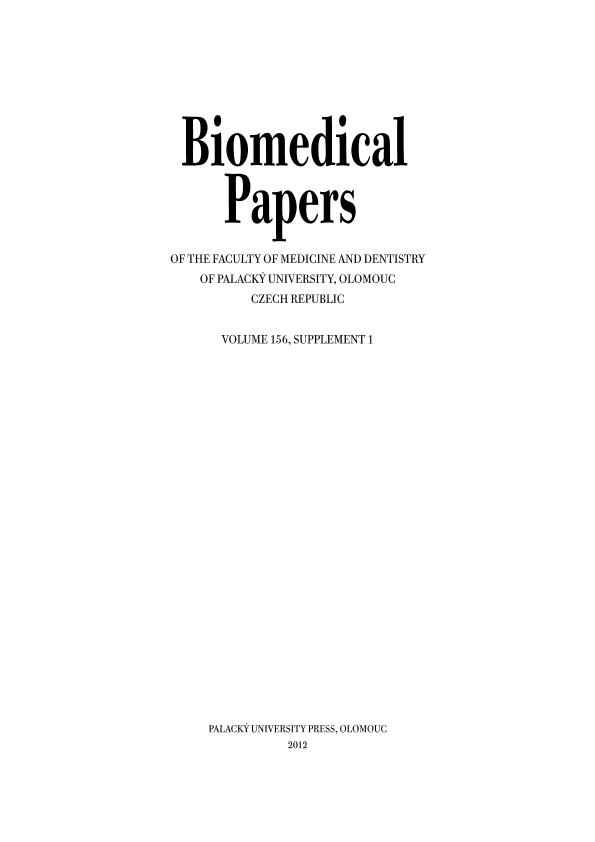Mostrar el registro sencillo del ítem
dc.contributor.author
Crespo, Rosana

dc.contributor.author
Galle, Marianela Edith

dc.contributor.author
Bravo, Margarita G. de
dc.contributor.author
Polo, Mónica P.
dc.date.available
2020-04-16T17:33:51Z
dc.date.issued
2012-07
dc.identifier.citation
Crespo, Rosana; Galle, Marianela Edith; Bravo, Margarita G. de; Polo, Mónica P.; Geraniol inhibits tumor cell proliferation in vitro and in vivo by posttranscriptional regulation of HMGCR; Palacky Univ; Biomedical Papers-olomouc; 156; Supl. 1; 7-2012; 95-95
dc.identifier.issn
1213-8118
dc.identifier.uri
http://hdl.handle.net/11336/102760
dc.description.abstract
Plant isoprenoids are widely known as nontoxic natural compounds that inhibit cell proliferation with selectivity against tumor cells. Isoprenoids are also potent suppressors of the 3-hydroxy-3-methylglutaryl coenzyme A reductase (HMGCR), the enzyme catalyzing the main rate-limiting step of the mevalonate pathway and cholesterol synthesis in mammalian cells. HMGCR inhibition decreases the elevated cholesterol levels widely required by rapidly growing cancer cells, inhibits the prenylation of certain growth-regulatory proteins that play a key role in controlling cell proliferation, and induces apoptosis. Geraniol, an acyclic isoprenoid monoterpene, occurring in the essential oils of several aromatic plants, is thought to represent a new class of chemotherapeutic agent. In order to evaluate the antiproliferative property of geraniol in vitro and in vivo, and to understand the mechanisms by which this monoterpene inhibits cell growth, we studied its effects on human- lung epithelial (A549) and human-hepatoma cell lines (HepG2) as well as on A549 implanted in nude mice fed with 50-75 mmol.GOH/kg diet for 21 days. Viability and proliferation of cells incubated with 200 -600 µM geraniol were determined by trypan-blue?dye-exclusion cell and by the MTT assay. Apoptosis was determined by TUNEL assay and caspase-3 activity. HMGCR expression was analyzed by real-time RT-PCR, Western blots, and [14C]HMG-CoA-conversion radioactivity assays. Lipid synthesis was assessed by incorporation of [14C]acetate. Our results showed that 200 -600 µM geraniol inhibits cell proliferation in both cell lines. HMGCR-mRNA expression was significantly increased in liver cells but HMGCR-protein levels and enzymatic activity, along with cholesterol synthesis, became significantly decreased. These results showed that geraniol down-regulates the enzyme by a posttranscriptional mechanism. In vivo assays geraniol significantly reduced tumor growth and significantly enhanced apoptosis of tumor cells. Treated host-mice also showed a decreased in HMGGR-protein levels and cholesterogenesis. The relevance of this work resides in the finding that geraniol both decreases HMGCR levels and inhibits tumor cell proliferation in vitro and in vivo suggesting that geraniol has a great potential as a natural drug against cancer.
dc.format
application/pdf
dc.language.iso
eng
dc.publisher
Palacky Univ

dc.rights
info:eu-repo/semantics/openAccess
dc.rights.uri
https://creativecommons.org/licenses/by/2.5/ar/
dc.subject
Geraniol
dc.subject
Cell-Proliferation
dc.subject
Posttranscriptional-Regulation
dc.subject
Hmgcr
dc.subject.classification
Bioquímica y Biología Molecular

dc.subject.classification
Ciencias Biológicas

dc.subject.classification
CIENCIAS NATURALES Y EXACTAS

dc.title
Geraniol inhibits tumor cell proliferation in vitro and in vivo by posttranscriptional regulation of HMGCR
dc.type
info:eu-repo/semantics/article
dc.type
info:ar-repo/semantics/artículo
dc.type
info:eu-repo/semantics/publishedVersion
dc.date.updated
2019-04-26T18:23:06Z
dc.journal.volume
156
dc.journal.number
Supl. 1
dc.journal.pagination
95-95
dc.journal.pais
República Checa

dc.journal.ciudad
Palacký University
dc.description.fil
Fil: Crespo, Rosana. Consejo Nacional de Investigaciones Científicas y Técnicas. Centro Científico Tecnológico Conicet - La Plata. Instituto de Investigaciones Bioquímicas de La Plata "Prof. Dr. Rodolfo R. Brenner". Universidad Nacional de la Plata. Facultad de Ciencias Médicas. Instituto de Investigaciones Bioquímicas de La Plata "Prof. Dr. Rodolfo R. Brenner"; Argentina
dc.description.fil
Fil: Galle, Marianela Edith. Consejo Nacional de Investigaciones Científicas y Técnicas. Centro Científico Tecnológico Conicet - La Plata. Instituto de Investigaciones Bioquímicas de La Plata "Prof. Dr. Rodolfo R. Brenner". Universidad Nacional de la Plata. Facultad de Ciencias Médicas. Instituto de Investigaciones Bioquímicas de La Plata "Prof. Dr. Rodolfo R. Brenner"; Argentina
dc.description.fil
Fil: Bravo, Margarita G. de. Consejo Nacional de Investigaciones Científicas y Técnicas. Centro Científico Tecnológico Conicet - La Plata. Instituto de Investigaciones Bioquímicas de La Plata "Prof. Dr. Rodolfo R. Brenner". Universidad Nacional de la Plata. Facultad de Ciencias Médicas. Instituto de Investigaciones Bioquímicas de La Plata "Prof. Dr. Rodolfo R. Brenner"; Argentina
dc.description.fil
Fil: Polo, Mónica P.. Consejo Nacional de Investigaciones Científicas y Técnicas. Centro Científico Tecnológico Conicet - La Plata. Instituto de Investigaciones Bioquímicas de La Plata "Prof. Dr. Rodolfo R. Brenner". Universidad Nacional de la Plata. Facultad de Ciencias Médicas. Instituto de Investigaciones Bioquímicas de La Plata "Prof. Dr. Rodolfo R. Brenner"; Argentina
dc.journal.title
Biomedical Papers-olomouc

dc.relation.alternativeid
info:eu-repo/semantics/altIdentifier/url/http://biomed.papers.upol.cz/incpdfs/pri-990000-0200_10_026.pdf
dc.relation.alternativeid
info:eu-repo/semantics/altIdentifier/url/https://biomed.papers.upol.cz/artkey/pri-990000-0200_VOLUME_156_Supplement_1.php
Archivos asociados
